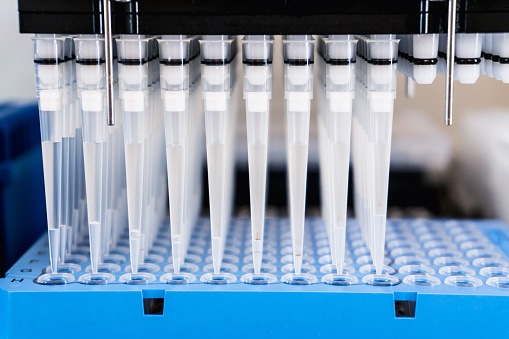
In previously published research, Yoshihito Nihei, MD, and others reported that they had detected IgA-type autoantibodies against mesangial cells (anti-β2-spectrin and anti-CBX3 IgA) in the sera of IgA nephropathy (IgAN) model mice. In a poster presented at ASN Kidney Week 2024, researchers provided clinical evidence of these IgA autoantibodies in human IgAN. Their poster was titled Clinical Evidence That Defines IgAN as a Tissue-Specific Autoimmune Glomerulonephritis.
The researchers recruited patients with biopsy-proven IgAN (n=119) and a disease control (DC) group with other kidney disease (n=51). All subjects came from Juntendo University Hospital in Japan (IgAN: n=70; DC: n=32) or Leicester General Hospital in the United Kingdom (IgAN: n=49; DC: n=19). The team used enzyme-linked immunosorbent assay to measure serum anti-β2-spectrin and anti-CBX3 IgA and utilized western blot using anti-Gd-IgA1 antibody to analyze glycosylation of purified anti-β2-spectrin and anti-CBX3 IgA.
Anti-β2-spectrin and anti-CBX3 IgA were detected more often in IgAN patients than the DC group in both the Japan and UK cohorts. Of the 119 IgAN patients, 30 were positive for anti-β2-spectrin IgA, and three of the 51 DC patients were positive (sensitivity, 25.2%; specificity, 94.1%).
Forty-eight IgAN patients were positive for anti-CBX3 IgA, as were three DC patients (sensitivity, 40.3%; specificity, 94.1%). There were 16 IgAN patients who were positive for both anti-β2-spectrin and anti-CBX3 IgA. Western blot analysis found that the purified serum anti-β2-spectrin and anti-CBX3 IgA from IgAN patients were more enriched for Gd-IgA1 than the total serum IgA.
Anti-β2-spectrin and anti-CBX3 IgA were found in patients with IgAN with high specificity, and these IgA-type autoantibodies have the property of galactose deficiency. Specifically, anti-mesangium Gd-IgA1 exist in circulation of IgAN patients.
In summary, the researchers were successful in finding clinical evidence showing that anti-mesangium IgA is involved in the pathogenesis of human IgAN, defining IgAN as a tissue-specific autoimmune glomerulonephritis.
Source: Nihei Y, Koizumi A, Barratt J, Suzuki H, Suzuki Y. Clinical evidence that defines IgAN as a tissue-specific autoimmune glomerulonephritis. FR-PO817. Abstract of a poster presented at the American Society of Nephrology Kidney Week 2024; October 25, 2024; San Diego, California.







 © 2025 Mashup Media, LLC, a Formedics Property. All Rights Reserved.
© 2025 Mashup Media, LLC, a Formedics Property. All Rights Reserved.